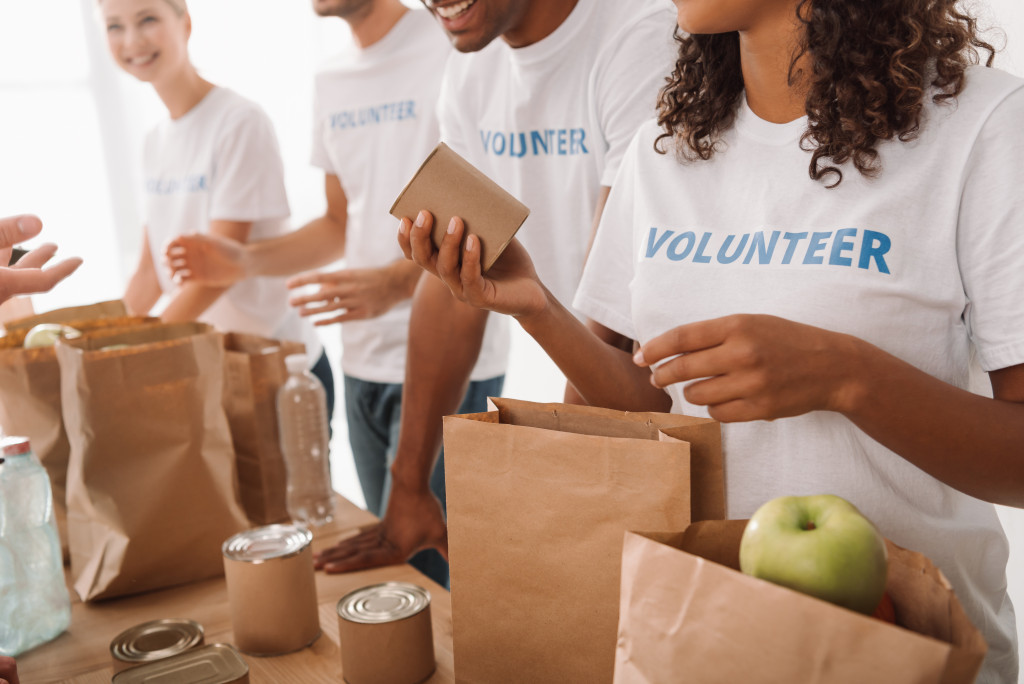COVID-19 has brought with it a wave of despair accompanied by an economic and food crisis globally. It’s a time of uncertainty. We’re all feeling the pinch and wonder how we can help ourselves and those around us in these troubled times.
It is important to remember that there are many things you can do that will directly impact those around you without going out of your way or breaking the bank. Learn the five voluntary practices during the pandemic that will contribute to society and bring meaning into our lives.
Donating Belongings
There are many ways to help those suffering from the brunt of an economic crisis in COVID -19 times. One way is by donating your old clothes and furniture to charity shops or second-hand stores where they can be resold. This will help those in need of clothes or furniture but who do not have the money to afford them. It is also important to donate your old shoes and boots by leaving them at the door so they can be collected for people who are not fortunate enough to have a pair.
If you are lucky enough not to be affected financially by the situation with considerable money to spare and want to make a difference, then consider donating it to charity centers or make an online donation! The best thing about donating money is that any amount will help those in need!
When donating money, thoroughly research where your donations will go and if the organization is reliable and ethical enough by browsing through websites such as Charity Navigator, which rates charities.
You can also buy or make food and donate it to homeless shelters, soup kitchens, or other community centers. This act of kindness will help those living on the streets or immersed in near poverty.
Blood Donations
If you’re struggling with money yourself and do not have much on your hand to spare, consider donating blood – it’s a great way to help without spending anything!
Blood donations are constantly needed in these difficult times. As the healthy population decreases due to so many sick and dying, fewer donations are available than usual.
To donate blood, you need to be 17 years of age or over, weigh at least 110 pounds (50kg), have a good BMI, and not feel unwell the day before donating. This can often be put down as an act of kindness on your CV, giving you extra points. The NHS has a website listing the locations of all their blood banks, so it is easy to find one near you! You can also donate blood plasma which is often needed during the pandemic and requires a donation session of 45 minutes.
Volunteering/Helping With Your Time

If you cannot do either of the things mentioned above, the least you can do is donate your time to organizations that need it. Volunteering with a charity or organization in need of assistance not only gives back and helps others but also provides an opportunity for personal growth.
Whether it’s helping in soup kitchens, building houses for those affected by disaster, or doing literacy work with at-risk youth, volunteering can be a rewarding experience. There are many different types of volunteer work and organizations that need help.
It can be as easy and informal as spending a few hours of your time during the day on a one-off basis, or you could commit to longer volunteering stints with an organization for extended periods.
If you want to make a difference by donating your time and money, think about volunteering for local organizations such as Direct Relief that often need volunteers for the commendable work they do.
Participating in healthy clinical trials is also a great way to volunteer your time. Clinical trials are often conducted on healthy volunteers so that scientists can research the effects of this ongoing pandemic and find ways to prevent it from spreading further.
Other Bits of Help and Needs
Apart from money and personal belongings, there are some other ways you can help.
For example, if you like writing, consider donating your time and skills by volunteering for organizations built to spread awareness on a one-off or regular basis. Write articles about the effects of the pandemic to raise awareness of the hardships faced during these difficult times, such as homelessness, poverty, unemployment, and violence.
If you are a skilled plumber, electrician, or carpenter, then consider donating your services to those in need of them by putting yourself forward as an independent contractor on sites such as TaskRabbit, but at a fraction of the original cost. It’s always good to have spare time and skills, so why not offer some help?
The last thing you can do is get involved in your community and talk with others about the economic downturn, how it has affected them personally and what they are doing now that times have changed. The most important people to reach out to are those who may not be connected with their local communities or organizations. This will help bring the community together and ease help improve the mental health of those suffering. The least you can do is give in yourself a person to society they can trust and rely on!
Donating money, blood, time, or even skills is a great way to help during the pandemic. These are just some of the many different ways you can contribute and make a difference. Whatever you choose to do will be greatly appreciated and put into good use in your community.

